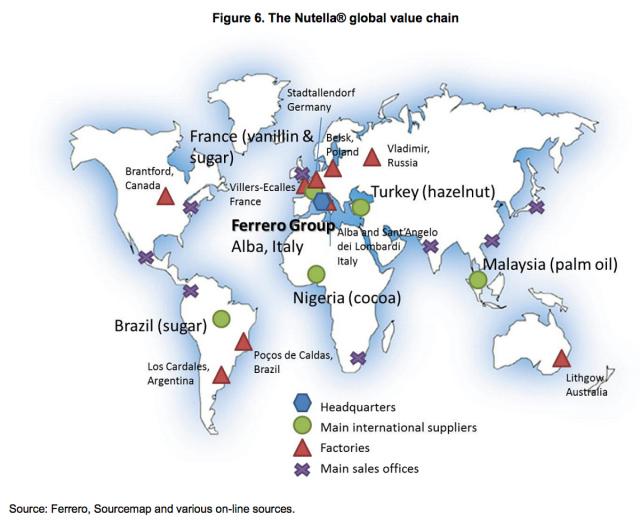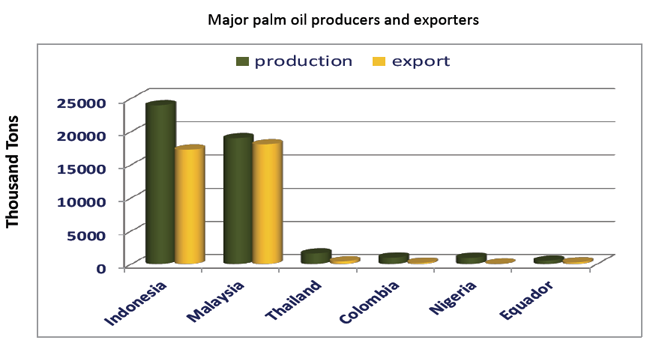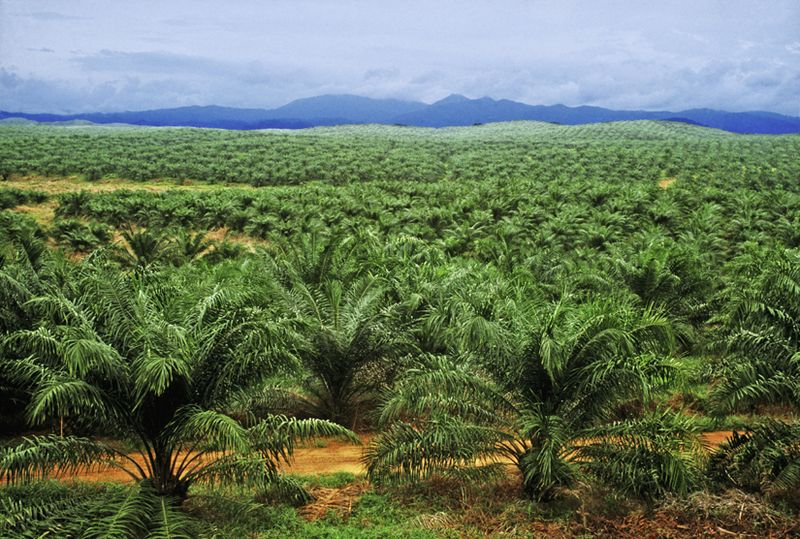Did You Know There Was A Dark Side To Your Love For Nutella?
Nutella's dark side is a spread of bittersweet facts that might change the way you look at your next chocolate sandwich
Nutella was at risk recently after French ecology minister advised the country to lay off it for the sake of mother nature
Michele Ferrero, creator of every chocolate lover's favourite spread will be rolling in his grave if he heard what French's ecology minister had to say today.
The minister, Ségolène Royal, has rankled the company that makes Nutella by adressing the public to cut out Nutella from their diet as part of measures to save the enviroment.
"We have to replant masses of trees because there's been a massive deforestation, which also leads to climate change," she said.
"For example, we have to stop eating Nutella because of its palm oil, which is seeing trees getting replaced and causing considerable damage."
On 16 June, the day after the French ecology minister made the claim on the famous chocolate spread, makers of Nutella were quick to deny harm of any tropical forest
The French division of Nutella maker Ferrero replied to the minister that it only uses "100% certified sustainable palm oil for its products manufactured at Villers-Ecalles".
"Oil palm cultivation can go hand in hand with respect for the environment and populations...no forests or other valued conservancy spaces have been sacrificed to make Nutella," the company said.
Here's a cool fact: Ferrero actually gets 80% of its palm oil from Malaysia, making us the biggest contributor to Nutella production
Ferrero’s current records show that the total palm oil supply is 100% segregated and comes from 59 mills and 249 plantations in Peninsula Malaysia (80% of total volumes) and Insular Malaysia (3.8%).
From our analysis 5.15% of the palm oil volumes we buy are coming from approximately 27,510 smallholders or small farmers.
Malaysia currently stands as the second largest palm oil distributor in the world after being taken over by Indonesia in 2006
With at least half a million people working for the palm oil industry in our country, it plays a huge role by contributing about 5-6% to Malaysia's GDP (Gross Domestic Product).
Malaysia's Sime Darby is currently the world's largest producer of palm oil and the world's largest listed palm oil company, producing approximately 2.8 million tonnes and 5% of the world's crude palm oil output (CPO).
Felda Global Ventures Holdings (FELDA) also a Malaysian based company ranks second after Sime Darby and also the world's largest listed palm oil plantation operator. The company produces an estimate of 1.5 million tonnes of palm oil yearly and owns at least 450,000 hectares of palm plantation across Malaysia.
feldaglobal.comWhat we didn't know was between 1990 and 2010 approximately 3.5 million hectares of rainforest in Sumatra have been cleared off to meet the increasing demand of palm oil
Deforestation for palm oil production contributes significantly to climate change. The removal of the forests often involves the burning of invaluable timber and forest undergrowth, emitting immense quantities of smoke into the atmosphere.
Indonesia is currently the sixth highest greenhouse gas emitter in the world after China, US, EU, India and Russia.
To add, an estimated 2.5 million people have been displaced in Borneo since 1970 due to the expansion of palm oil plantations
In reality, the government’s main interest in the country’s economy leads them to allow corporations to take the land owned by indigenous peoples for their own financial benefit.
The palm oil industry is linked to major human rights violations, including child labour as they are made carry heavy loads and spend hours every day bent over collecting fruit from the plantation floor. More than often not, children receive little or no pay for their efforts.
For many, Nutella plays a huge role in our daily lives. That explains the 250,000 tons (250 MILLION kilogrammes!) of Nutella sold in 75 countries each year
At least one jar of Nutella is sold every 2.5 seconds worldwide. If that's not enough, during 2013-2014 financial year the Ferrero Group registered a growing consolidated turnover of 8.4 billion Euros from Nutella alone.
nutella.comAnother jaw-dropping fact, 25 percent of the worlds Hazelnuts crop is used in a years worth of Nutella. That is, 50 hazelnuts to every jar of 13 ounce jar Nutella.
ferrero.comAll our Nutella eating has definitely contributed to making Michele Ferrero, owner of Ferreo Italy's richest person in 2014, estimated by Forbes to have a net worth of $26.8 billion.
telegraph.co.ukIt is thought that 50% of the products found on our supermarket shelves contain palm oil. Since it's become such a staple, here's a list of some palm oil based products
The oil makes up about 20% of the weight of a packet of instant noodles. Its used to pre-cook the noodles so all you have to do is add hot water. It is also a base for most cookies and ice-cream as it gives the product its creamy and smooth texture.
Alright, all these facts may seem overwhelming for your soft spot for a chocolate spread but it's always good to know the story behind the food you eat
So should you stop spreading Nutella altogether? According to Ferrero, the company has been actively involved in practicing sustainable palm oil since 2005
What is sustainable palm oil?
Sustainable palm oil is an approach to oil palm agriculture that aims to produce palm oil without causing deforestation or harming people.
Being a member of Roundtable on Sustainable Palm Oil (RSPO) since 2005, it aims to transform markets to make sustainable palm oil the norm by developing and implementing global standards for sustainable palm oil.
In 2013, the chocolatier launched the Ferrero Palm Oil Charter which involved protecting orang-utans and other endangered species by maintaining High Conservation Value areas and avoiding using fire to clear land as reported by their official website.
You can play a role in helping the environment by checking labels of products to ensure the products certified safe
Look for the RSPO label to ensure you purchase products made with certified sustainable palm oil. This label gives you the confidence that the palm oil was produced in a socially and environmentally responsible way.
Can't find the RSPO label? Look for the Green Palm label to purchase products that support the transition to certified palm oil. Proceeds from Green Palm certificates help growers fund the transition to sustainable palm oil.
















